Switchgear Products
Shed 06, Aber Warehouse
Dubai Investment Park 02,
PO Box: 414345 , Dubai.
United Arab Emirates.
Mobile: +971 50 2420957
Email: [email protected]
Generator Control Panel
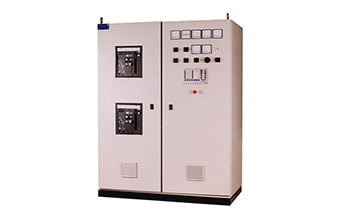
A generator panel is a control panel used to operate a generator, which is a machine that converts mechanical energy into electrical energy. The generator panel typically includes switches, breakers, and other components that allow the operator to start, stop, and control the generator’s output. The panel may also include indicators, such as meters and gauges, that show the generator’s operating status and output level.
The generator panel is an essential part of any generator system, as it allows the operator to safely and effectively control the generator’s operation. It is typically located near the generator and may be mounted on a wall or cabinet. The panel may also be connected to a remote control system, allowing the operator to control the generator remotely.
Based on the nature and dimensions of the generator, a generator panel typically has the following components:
- Main power switch: This switch is used to turn the generator on and off.
- Circuit breakers: These devices protect the generator and the electrical system it is connected to by automatically interrupting the flow of electricity in the event of an overload or short circuit.
- Meters and gauges: These instruments display various parameters of the generator’s operation, such as output voltage, current, and frequency.
- Control panel: This panel includes buttons and switches that allow the operator to control various aspects of the generator’s operation, such as output power and frequency.
- Remote control system: Some generator panels are equipped with a remote control system, allowing the operator to control the generator remotely.
Overall, the generator panel is an essential component of any generator system, as it allows the operator to safely and effectively control the generator’s operation.
Here’s how we work
The generator panel is connected to the generator, which supplies power to the panel. The individual circuits in the panel are then distributed to the various outlets, appliances, and devices that need energy in the building. When a circuit overload occurs, the circuit breaker for that particular circuit will trip, interrupting the flow of electricity and preventing the circuit from overheating or causing a fire.
You will need to locate the circuit breaker switches to use the generator panel and determine which circuits correspond to which outlets or appliances. You can then use the switches to turn off power to specific circuits as needed. It is essential to exercise caution when working with a generator panel, as live electrical wires can be dangerous.
-
1
A generator panel is an electrical panel used to distribute power from a generator to a building or other structure.
-
2
It typically consists of circuit breaker switches that can turn the power off to individual circuits.
-
3
The generator panel is connected to the generator, which supplies power to the panel. The individual circuits in the panel are then distributed to various outlets, appliances, and devices in the building.
-
4
When a circuit overload occurs, the circuit breaker for that particular circuit will trip, interrupting the flow of electricity and preventing the circuit from overheating or causing a fire.
FAQs Related to Generator Panel
What is a generator panel?
A generator panel is a type of electrical panel used to control and distribute power from a generator to the electrical circuits in a building. It typically consists of a metal enclosure containing circuit breakers or fuses and various other components such as bus bars, neutral bars, and grounding bars.
How does a generator panel work?
When the generator runs, it produces electrical power distributed to the generator panel. The panel then uses circuit breakers or fuses to control and distribute the power to the electrical circuits in the building. If an overcurrent or short circuit occurs, the circuit breaker or fuse will trip, breaking the electrical connection and preventing damage to the wiring and other electrical components.
Can a generator panel be used as a main panel?
Some generator panels are designed to be used as a main panel, meaning that they can control and distribute power to the entire electrical system in a building. Other generator panels are designed to be used as a secondary panel, which are used in conjunction with the main board to provide backup power during an outage.
How do I maintain a generator panel?
Following the manufacturer’s recommended maintenance and repair procedures is essential to maintain a generator panel. It may include regularly cleaning the panel and its components, checking for and repairing any damaged or worn parts, and testing the panel to ensure it is functioning correctly. Protecting the generator panel from environmental hazards such as moisture, dust, and extreme temperatures is also essential.
Why is a Generator Control Panel important?
The GCP is essential for several reasons. It monitors and regulates the generator’s performance, controls start-up and shutdown processes, and provides vital information about the generator’s status. It enhances the overall efficiency and lifespan of the generator.
What maintenance is required for a Generator Control Panel?
Regular inspections and testing are recommended to ensure the GCP’s continued reliability. Checking connections, updating firmware, and verifying sensor accuracy are standard maintenance tasks. Consult the manufacturer’s guidelines for specific recommendations.
What are the key functions of a Generator Control Panel?
The GCP performs various critical functions, including:
- Start/Stop Control: Initiates and halts the generator as needed.
- Monitoring: Tracks parameters such as voltage, current, frequency, and temperature.
- Protection: Guards against overloads, overheating, and other potential issues.
- Data Display: Provides real-time information about the generator’s status.
- Automation: Enables automatic switching between the main power supply and the generator during power outages.
Other Products
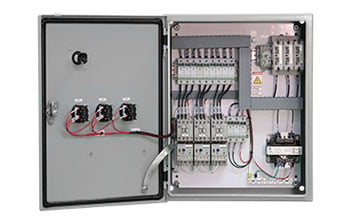
Motor Control Panel
A motor control panel, also known as a motor control center or MCC, is a device used to control the operation of motors in industrial and commercial applications.
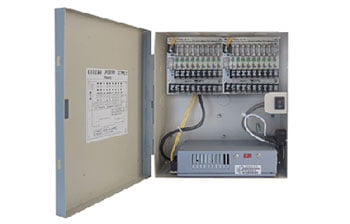
Distribution Panel
A distribution panel, a distribution board, is a device used to distribute electrical power from the utility or main service panel to the various loads in a building.
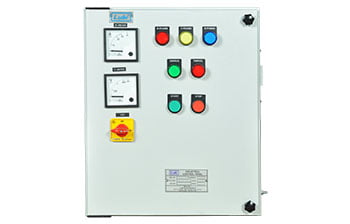
Starter Panel
Starter panels typically consist of a metal enclosure containing various electrical components, such as circuit breakers, fuses, and contractors, which regulate the motor’s supply of electrical power.
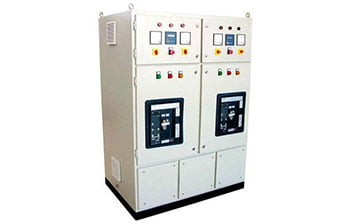
Control Panel
Control panels are used in various applications, including manufacturing, transportation, power generation, and building automation, to control the operation of electrical and electronic systems.
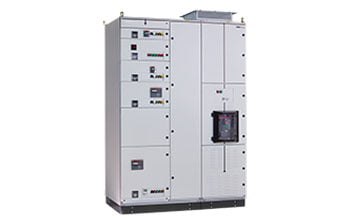
Low Voltage (LV) Panel
LV panels are designed to safely and efficiently distribute electrical power to different areas of a building or facility.
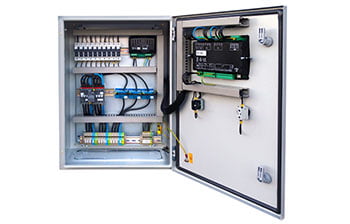
Transfer Panel
A transfer panel is a device used to transfer electrical power from one source to another, such as from a utility source to a generator.
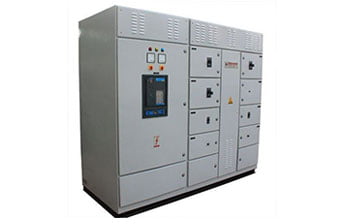
Main Distribution Board
A central distribution board (MDB) is a device used to distribute electrical power from the utility or main service panel to the various loads in a building.
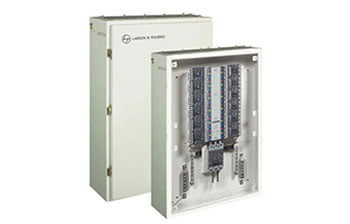
Submain Distribution Board
A sub-main distribution board (SMDB) is a device that distributes electrical power from the main distribution board (MDB) to various building areas.
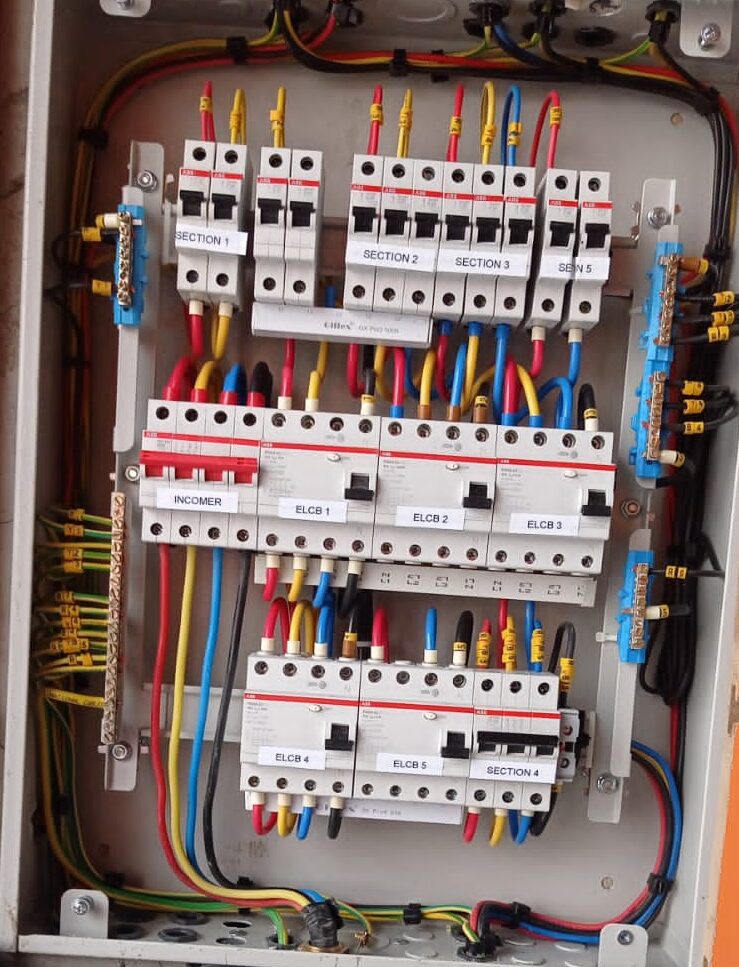
Distribution Board
A distribution board (DB) is a device used to distribute electrical power to the various loads in a building. It typically includes circuit breakers, fuses, and other components used to control and distribute electrical power.











